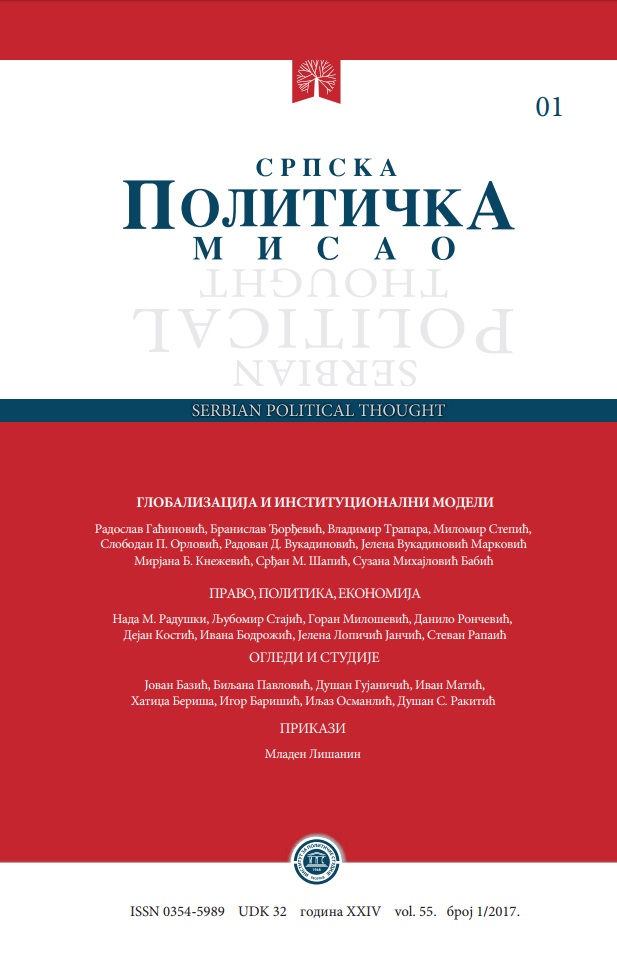Епистемички процедурализам као модел демократског одлучивања
Epistemic Proceduralism as a Model of Democratic Decision-Making
Author(s): Ivan MatićSubject(s): Government/Political systems, Politics and society
Published by: Институт за политичке студије
Keywords: individual and collective decision-making; aggregative democracy; Arrrow’s theorem; deliberative democracy; epistemic proceduralism; David Estlund
Summary/Abstract: The subject of this paper is the analysis of epistemic proceduralism as a unique model within the deliberative dimension of democratic theory. The first part of the paper presents a brief overview of the foundations of rational choice theory on the individual and collective levels, establishing the criteria of asymmetry, transitivity and completeness. These concepts are elaborated upon through the lens of Arrow’s theorem, which introduces further conditions of unrestricted domain, positive preference ranking, independence from irrelevant alternatives and non-dictatorship as criteria for rational, ethical group choice. In light of this, the concept of aggregative democracy is proven as theoretically unsustainable. The following part of the paper is dedicated to the presentation and consideration of the alternative, deliberative conception of democracy, accentuating the contrast between its basic models, the epistemic and the procedural one. The evolution of democratic theory from Rousseauian and Condorcetian conceptions of popular rule as optimal for attaining good results toward contemporary understanding of democracy as a deliberative procedure is described here. The final part of the paper presents a detailed analysis of the middle-of-the-line model, epistemic proceduralism, developed by author David Estlund. The study focuses on the deficiencies of the previous two models, exploring the ways in which their shortcomings necessitate and give rise to epistemic proceduralism. Estlund’s model is then compared with the other ones in order to judge the capacity in which it fullfils the goals of deliberative democracy and whether it is hampered by deficiencies of its own.
Journal: Српска политичка мисао
- Issue Year: 2017
- Issue No: 1
- Page Range: 321-338
- Page Count: 18
- Language: Serbian

